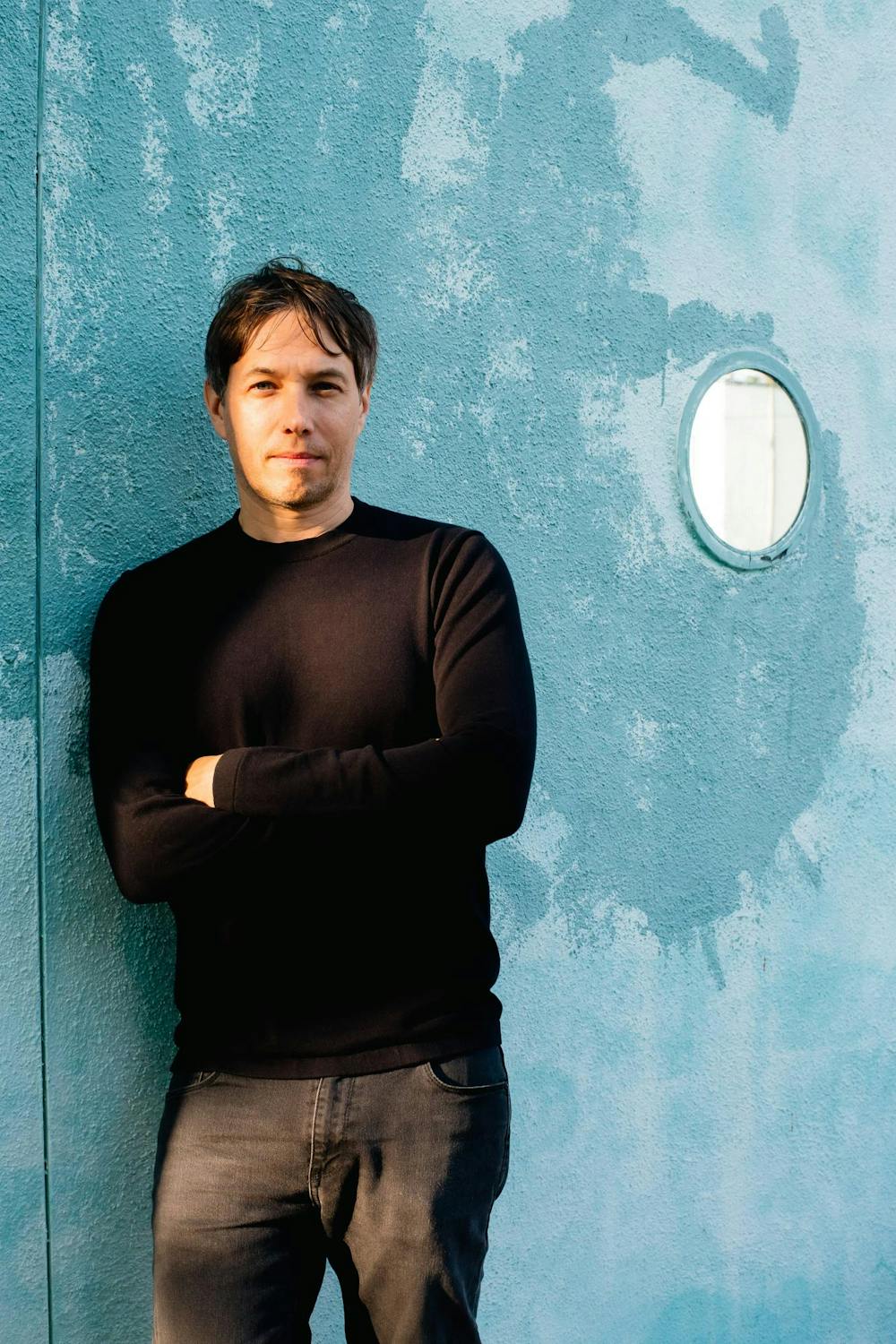On Saturday evening, the Ivy Film Festival hosted a conversation with Sean Baker — director of the Oscar-winning movie “Anora” — as a part of its 24th annual festival. The talk was held in the Granoff Center for the Creative Arts in collaboration with Brown Motion Pictures and the Brown Arts Institute.
Moderated by IFF co-director Maiya Jannah ’25 and IFF member Spencer Myers ’28, the event started with a discussion about Baker’s education at New York University and the New School.
After graduating from NYU in 1998 following a six-year “leave of absence,” Baker wanted to “focus on (his) directing career,” he told attendees. But with the rise of digital revolution in film, Baker decided to return to the classroom to take a course on non-linear editing at the New School.
Since completing his education, Baker has directed a number of films, including “Tangerine” in 2015 and “The Florida Project” in 2017. Last month, Baker became the first-ever person to win four Academy Awards in the same year for the same film, “Anora.”
Baker told attendees that his four wins have only “started to sink in” within the past few weeks. After the Academy Awards, he immediately went back to work, embarking on a research trip for his next film with his wife, Samantha Quan, who co-produced “Anora” with Baker.
When creating “Anora,” Baker’s only goal was for the film to compete at the Cannes Film Festival, he said. So when “Anora” won the Palme d’Or — Cannes’s most prestigious award — at the festival last year, he was shocked.
“I almost had a panic attack,” Baker said, describing how he felt when he realized he would have to campaign the film for the Oscars. He doesn’t like to think about awards to avoid “jinxing” himself, he added.
While filming “Anora,” Baker knew that Mikey Madison’s performance was Oscar-worthy — and he was right. In March, Madison, who plays the titular character, Anora, won the Academy Award for Best Actress in a Leading Role for her performance.
During the film’s pre-production process, Baker met with Madison to determine her interest in the project. After taking the role, Madison asked for updates on and would provide feedback throughout the writing process, according to Baker. This collaboration, Baker said in the talk, made Madison’s Oscar win much more meaningful.
Many of Baker’s films focus on the experiences of marginalized groups: sex workers in “Anora,” children from low-income families and the “hidden homeless” in “The Florida Project” and transgender people in “Tangerine.” While Baker said the underrepresentation of these groups in Hollywood is what draws him to these stories, he emphasized his commitment to retelling these experiences in a “responsible, respectful way.”
To establish trust with members of these groups, Baker works with liaisons who are connected to these communities, he said. When creating his 2004 film “Take Out,” Baker relied on his co-director Shih-Ching Tsou — who speaks Mandarin — to converse with immigrants working at a Chinese restaurant underneath the co-directors’ shared apartment in Manhattan. Hearing these accounts “led us to the story” of “Take Out,” Baker said.
Later, while working on his 2008 film “Prince of Broadway,” Baker attempted to interview numerous sellers of counterfeit goods and was redirected to Prince Adu, a West African immigrant living in Manhattan. Adu, an aspiring actor, was cast as the film’s lead character and was able to convey “the real experience — the African experience here in Manhattan,” Baker said.
Baker similarly worked with Mya Taylor — a transgender sex worker who was later cast as one of the film’s leads — to accurately portray the experiences of transgender people and sex workers in “Tangerine.”
In Saturday’s talk, Baker described his rise to fame as both a blessing and a curse for his career. Although he now has access to larger film budgets, this has made it harder to negotiate deals with artists during the filming process. While filming “Anora,” Baker became attached to “Gucci Flip Flops (feat. Lil Yachty)” by Bhad Bhabie, but in order to use a snippet of the song in the film, Baker would have had to pay a price well above his budget, he told attendees. In the end, Quan and co-producer Alex Coco convinced him to use another song in the scene instead.
When he was constrained by a smaller budget, Baker had to resort to “bartering … begging, borrowing and stealing” to create his films, he said. During the production of “Tangerine,” Baker only had to pay one restaurant a small fee to film there, as the other filming locations for the movie were free, he recalled.
Baker noted that when selecting locations for filming, the most important consideration is to ensure businesses that they won’t be affected by filming, adding that he had to wait for people to order while filming “Tangerine” and shoot around customers for “Take Out.”
But these low-budget, indie movies are what helped Baker rise to prominence within the film industry, he said. Baker recalled that when he was an amateur filmmaker, many of his friends would judge him for making low-budget films, seeing them as a “waste of time.” But that didn’t dissuade him from creating them, he said.
“It might take a while to be recognized,” Baker told the audience. “But you won’t be recognized at all unless you actually do it.”
Manav is a junior from Indiana, concentrating in International and Public Affairs. In his free time, he likes attempting the daily Connections puzzle or falling down Wikipedia rabbit holes.





